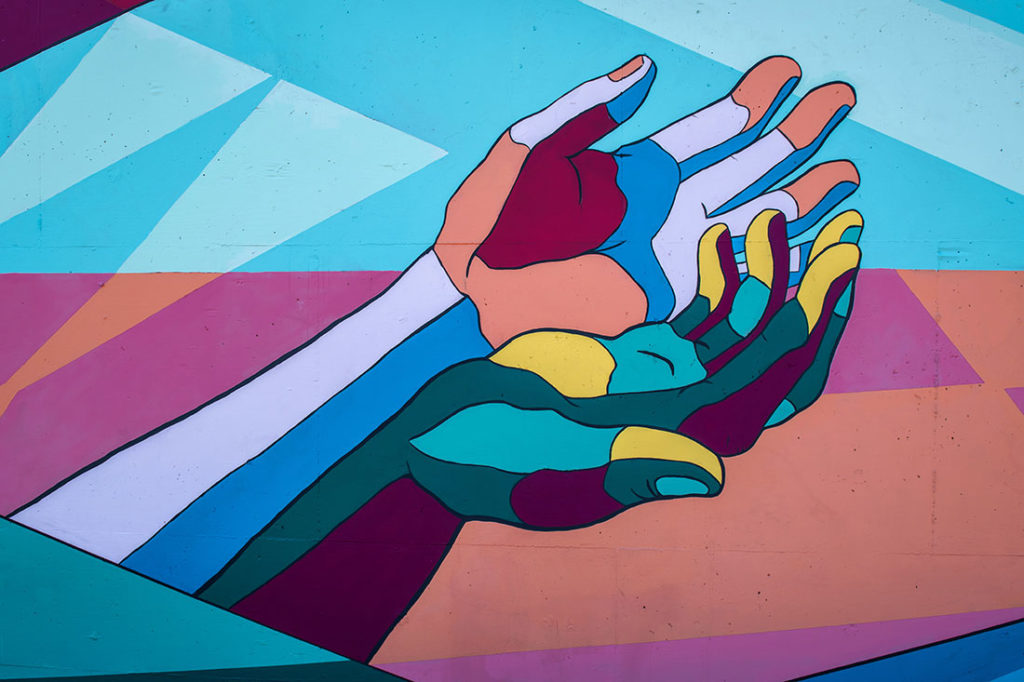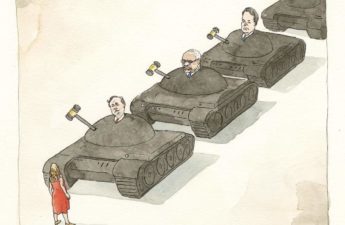How do we bridge the gap between compassion during an immediate crisis and long-term compassion that improves our society?
As a society, we have almost always answered the call when something bad happens. The entire country sprang to action after Pearl Harbor. We all came together after 9/11. During every hurricane and tornado there are blood drives, fundraisers, donation drop-offs.
Communities band together when tragedy strikes at home. Meal trains, donations, helping the families affected brings everyone together.
It is second nature for us to help when an unforeseen tragedy strikes.
Why do we stop there?
Why are we so willing to help strangers during a crisis but scoff at the idea of better healthcare or better access to education and trade schools?
An educated, healthy society helps all of us in the long run. The healthier the society, the less burden on our medical system. The more educated a society, the more problems we can solve, the more sickness we can cure.
Investing in our health and our education helps everyone.
So why do we resist?
Already, I am guessing, I have lost a few people reading this. They rolled their eyes and did not want to hear anymore. I have shifted into a political talk. Healthcare and education are political.
But why does it have to be political? Why does it have to be a left versus right discussion? Is it because giving in a crisis is not mandatory? Donating to a cause is by choice and you feel that being taxed to help pay for education and healthcare is by force?
I hear that a lot. We want the choice at where and when we help others. And I get that. I can see your point. But we live in a society that pays taxes. If we stopped paying our taxes, where would we get the 600 billion dollars that goes toward national defense? Where would we get the 900 billion used for Social Security, the 500 billion used towards social safety nets like food stamps?
Without taxes our country would have to find another way to raise money to have a military or build our roads.
So, let’s set the idea of taxes aside for now and talk about compassion again, ok?
I live in Texas.
In case you haven’t turned on the news, Texas was hit with a massive winter storm that knocked out the power for millions of people in subfreezing temperatures. The entire state was affected and millions went days and days without water and gas for heat. Grocery stores closed or could not restock their shelves.
Sadly, many people died from this. Many people suffered.
In the greatest nation in the world, millions froze.
But do you know what I saw?
The community came together. Strangers offered their homes to those without power. In the middle of a pandemic strangers opened their doors. They offered water, blankets, food if they had it themselves.
People with 4×4 trucks offered to help pull cars from the ice, deliver supplies to their neighbors. Many posted on social media they were at a store with fresh supplies and if anyone needed anything. Our officials worked around the clock to provide information and help. We were all in this together.
But it didn’t stop at our town border. People from across the country helped. They donated, they phone banked to get information to citizens, they pitched in however they could.
I saw the beauty in my own country, and it was inspiring.
So why can’t we extend this feeling beyond moments of unexpected tragedy to include the long-term problems of the known reality?
Why do so many turn away when they are asked about the millions of homeless freezing every winter? Why does a natural disaster have to happen to open our hearts?
Nothing is stronger than when a community comes together, and America is a community. It is made up of so many different people, but we are all in this together.
We have many problems. Many of them are not an easy fix. We must find a way through the muck and vitriol so we can focus on real, lasting change. Maybe people turn away from helping the homeless because they feel the problem will never go away. There will always be homeless. So, is our choice to then just ignore it? Close our eyes and move along? Wait until disaster strikes before we help again? I’m not just talking about homeless either.
The same person you trekked through freezing snow to provide water too, may need help affording an education. They may need help paying for medication that saves their life when the snow melts. This does not mean they are lazy. This does not mean they are looking for handouts because they don’t want to fight for the things they need. It is not that simple of an explanation. There are systems that are failing us. Education and healthcare are failing us, in the long term. There are too many left on the outside looking in, too many not getting the proper resources that others are getting. And that problem affects us all. It affects our communities, the schools our children go to, our ability to grow as a society.
Change is hard yet we always find a way to react when the change is sudden and devastating. We need to find a way to handle change to things that are more deeply rooted. Things that will take longer to fix than just a dropping off supplies or a blanket.
I would rather be an interdependent nation than an independent one. Communities working with communities, states working with states, a nation working together to make sure everyone benefits.
Help everyone you can in whatever way you can. That is what a community does.
Bridge the gap between helping during crisis and helping because someone needs help.
I saw the beauty in our community this week. It chipped away at the ugliness at how the tragedy began. I saw the beauty in strangers. I hope to see more.

